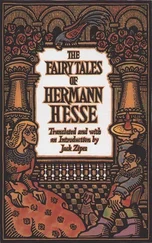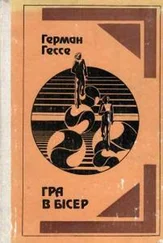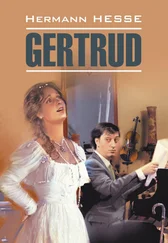In general, a passing grade in the final examination in one of the academies, especially one of the elite schools, is considered sufficient qualification for a Glass Bead Game player; but in the past and to this day superior competence in one of the principal fields of scholarship or in music is tacitly assumed. To rise some day to membership in one of the Games Commissions, or even to Ludi Magister, is the dream of almost every fifteen-year-old in the elite schools. But by the time these youth have become doctoral candidates, only a tiny percentage still seriously cling to their ambition to serve the Glass Bead Game and take an active part in its further development. On the other hand, all these lovers of the Game diligently study the lore of the Game and practice meditation. At the “great” Games they form that innermost ring of reverent and devoted participants which gives the public matches their ceremonial character and keeps them from devolving into mere aesthetic displays. To these real players and devotees, the Ludi Magister is a prince or high priest, almost a deity.
But for every independent player, and especially for the Magister, the Glass Bead Game is primarily a form of music-making, somewhat in the sense of those words that Joseph Knecht once spoke concerning the nature of classical music:
“We consider classical music to be the epitome and quintessence of our culture, because it is that culture’s clearest, most significant gesture and expression. In this music we possess the heritage of classical antiquity and Christianity, a spirit of serenely cheerful and brave piety, a superbly chivalric morality. For in the final analysis every important cultural gesture comes down to a morality, a model for human behavior concentrated into a gesture. As we know, between 1500 and 1800 a wide variety of music was made; styles and means of expression were extremely variegated; but the spirit, or rather the morality, was everywhere the same. The human attitude of which classical music is the expression is always the same; it is always based on the same kind of insight into life and strives for the same kind of victory over blind chance. Classical music as gesture signifies knowledge of the tragedy of the human condition, affirmation of human destiny, courage, cheerful serenity. The grace of a minuet by Handel or Couperin, the sensuality sublimated into delicate gesture to be found in many Italian composers or in Mozart, the tranquil, composed readiness for death in Bach — always there may be heard in these works a defiance, a death-defying intrepidity, a gallantry, and a note of superhuman laughter, of immortal gay serenity. Let that same note also sound in our Glass Bead Games, and in our whole lives, acts, and sufferings.”
These words were noted down by one of Knecht’s pupils. With them we bring to an end our consideration of the Glass Bead Game.
THE LIFE OF MAGISTER LUDI JOSEPH KNECHT
No KNOWLEDGE HAS come down to us of Joseph Knecht’s origins. Like many other pupils of the elite schools, he either lost his parents early in childhood, or the Board of Educators removed him from unfavorable home conditions and took charge of him. In any case, he was spared the conflict between elite school and home which complicates the youth of many other boys of his type, makes entry into the Order more difficult, and in some cases transforms highly gifted young people into problem personalities.
Knecht was one of those fortunates who seem born for Castalia, for the Order, and for service in the Board of Educators. Although he was not spared the perplexities of the life of the mind, it was given to him to experience without personal bitterness the tragedy inherent in every life consecrated to thought. Indeed, it is probably not so much this tragedy in itself that has tempted us to delve so deeply into the personality of Joseph Knecht; rather, it was the tranquil, cheerful, not to say radiant manner in which he brought his destiny and his talents to fruition. Like every man of importance he had his daimonion and his amor fati; but in him amor fati manifests itself to us free of somberness and fanaticism. Granted, there is always much that is hidden, and we must not forget that the writing of history — however dryly it is done and however sincere the desire for objectivity — remains literature. History’s third dimension is always fiction.
Thus, to select some examples of greatness, we have no idea whether Johann Sebastian Bach or Wolfgang Amadeus Mozart actually lived in a cheerful or a despondent manner. Mozart moves us with that peculiarly touching and endearing grace of early blossoming and fading; Bach stands for the edifying and comforting submission to God’s paternal plan of which suffering and dying form a part. But we do not really read these qualities from their biographies and from such facts about their private lives as have come down to us; we read them solely from their works, from their music. Furthermore, although we know Bach’s biography and deduce his personality from his music, we involuntarily include his posthumous destiny in the picture. We conceive him as living with the knowledge, which causes him a silent smile, that all his work would be forgotten after his death, that his manuscripts would be treated as so much waste paper, that one of his sons instead of himself would be considered “the great Bach,” and harvest the success he himself merited, and that after his work had been rediscovered it would be plunged into the misunderstandings and barbarities of the Age of the Feuilleton, and so on. Similarly, we tend to ascribe to Mozart, while still alive and flourishing, and producing his soundest work, some knowledge of his security in the hands of death, some premonition of the kindness with which death would embrace him. Where a body of work exists, the historian cannot help himself; he must sum it up, along with the life of the creator of that work, as two inseparable halves of a living unity. So we do with Mozart or with Bach; so we also do with Knecht, although he belongs to our essentially uncreative era and has not left behind any body of work of the same nature as those masters.
In attempting to trace the course of Knecht’s life we are also attempting to interpret it, and although as historians we must deeply regret the scantiness of authenticated information on the last period of his life, we were nevertheless encouraged to undertake the task precisely because this last part of Knecht’s life has become a legend. We have taken over this legend and adhere to its spirit, whether or not it is merely a pious fiction. Just as we know nothing about Knecht’s birth and origins, we know nothing about his death. But we have not the slightest reason for assuming that this death could have been a matter of pure chance. We regard his life, insofar as it is known, as built up in a clear succession of stages; and if in our speculations about its end we gladly accept the legend and faithfully report it, we do so because what the legend tells us about the last stage of his life seems to correspond fully with the previous stages. We go so far as to admit that the manner in which his life drifts gently off into legend appears to us organic and right, just as it imposes no strain on our credulity to believe in the continued existence of a constellation that has vanished below the horizon. Within the world in which we live — and by we I mean the author of this present work and the reader — Joseph Knecht reached the summit and achieved the maximum. As Magister Ludi he became the leader and prototype of all those who strive toward and cultivate the things of the mind. He administered and increased the cultural heritage that had been handed down to him, for he was high priest of a temple that is sacred to each and every one of us. But he did more than attain the realm of a Master, did more than fill the office at the very summit of our hierarchy. He moved on beyond it; he grew out of it into a dimension whose nature we can only reverently guess at. And for that very reason it seems to us perfectly appropriate, and in keeping with his life, that his biography should also have surpassed the usual dimensions and at the end passed on into legend. We accept the miracle of this fact and rejoice in it without any inclination to pry into it interpretively. But insofar as Knecht’s life is historical — and it is that up to one specific day — we intend to treat it as such. It has been our endeavor, therefore, to transmit the tradition exactly as it has been revealed to us by our researches.
Читать дальше












